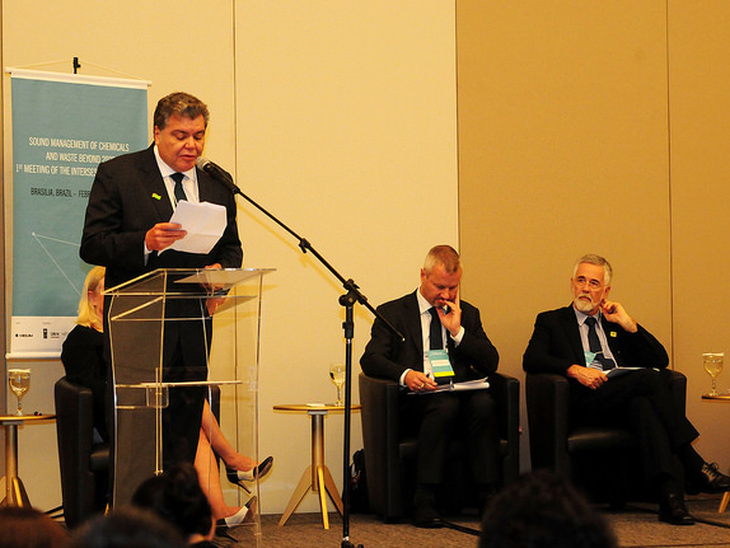
 Environment
Environment
At an international meeting of the chemicals sector, minister recognises advances in the management of chemicals and calls for more sustainability
BrazilGovNews
Brazilian Environment Minister Sarney Filho said this Tuesday (7 February) in Brasilia that it is necessary to move forward in the negotiations for an international agreement to promote chemical safety at the global level. He assessed that "the industry is one of the most dynamic sectors", and acknowledged that "chemicals management worldwide has evolved substantially,", but defended the need for progress with regard to the precautionary and sustainability measures.
“The industry has to offer products that create less impact on the environment and the health of people," he said. "Significant progress has been achieved in promoting the proper management of chemical substances, but much remains to be done.”
The three conventions dealing with chemicals (Stockholm, Minamata and Basel) are specific, addressing persistent organic pollutants, mercury and contaminated sites management (respectively). According to minister Filho, we still lack a set of rules to assess risks in relation to industrial chemicals.
The minister joined the First Meeting of the Intersessional Process on Chemicals and Wastes, which brought together representatives from 100 countries, environment ministers and international authorities. The event is expected to approve a document with recommendations for the 5th International Conference on Chemicals Management (ICCM5), scheduled for 2020.
The issue is paramount for Brazil. Data from the Brazilian Chemical Industry Association (ABQuim) shows that the country is the world's 6th largest chemicals consumer. It is estimated that between 12 and 15 thousand chemicals are in circulation in the Brazilian market. The sector represents 2.5% of Brazil's GDP, and generates 2 million direct and indirect jobs.
For Brazilian Health Minister Ricardo Barros, the country has made noticeable progress in the field of chemical safety with standards and parameters for the production and consumption of products. He cited as examples new and updated standards for water quality, pesticide control and the use of mercury. “Soon, the Ministry of Health will completely ban the use of equipment containing mercury," he announced.
Jochen Flasshbart, Germany's Environment Secretary, highlighted the challenges facing the transition to the sustainable production of chemicals by 2030. “In Germany, until a few decades ago, chemical disasters were a constant. Today we have improved markedly, but we still need advances that can only occur with the joint efforts of governments, the private sector and the people," he said.
The executive director of the UN Environment Programme (UNEP), Erik Solheim, discussed the damage caused by chemicals to health, stating that all citizens need to be informed whether a product is good or harmful to health and the environment. “Governments need to regulate the sector, and this must be done through ongoing dialogue with society, not inside offices," he noted.
Contact us